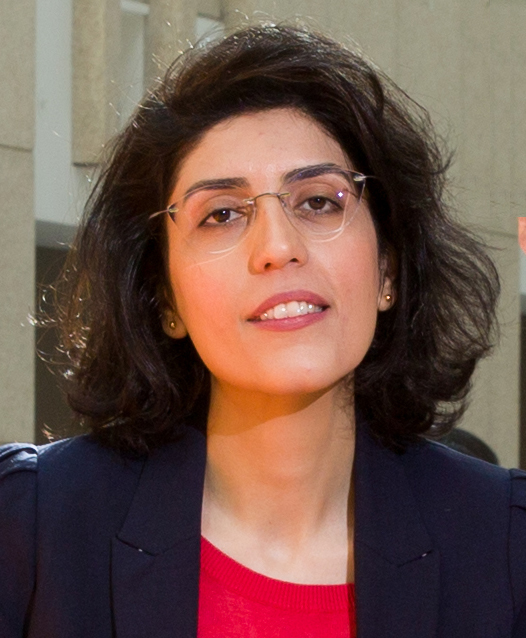
[tta_listen_btn listen_text=”Click to listen to this story” pause_text=”Pause” resume_text=”Resume” replay_text=”Replay” start_text=”Start” stop_text=”Stop”]
A three-year grant totalling $500,000 will fund a collaborative project between York University Professor Maleknaz Nayebi and RxPx, a company that creates and supports digital health solutions.

Naybei is a professor in the Lassonde School of Engineering in the Department of Electrical Engineering & Computer Science and a member of the Centre for Artificial Intelligence & Society (CAIS). CAIS unites researchers who are collectively advancing the state of the art in the theory and practice of artificial intelligence (AI) systems, governance and policy. The research includes a focus on AI systems addressing societal priorities in health care.
The funding, awarded by the Natural Sciences & Engineering Research Council of Canada’s Alliance Grant program, will support the development of the Digital Health Defragmenter Hub (DH2).
Alliance Grants support university researchers collaborating with partner organizations to “generate new knowledge and accelerate the application of research results to create benefits for Canadians.”
This collaborative project aims to address the intricate challenges within the Canadian digital health-care landscape by integrating advanced software engineering principles with machine-learning algorithms.
The project’s goal is to develop a software platform dedicated to digital health services. Currently, digital health services are designed and offered in isolation from other social, economic or health services, says Nayebi, adding that this results in inharmonious digital health care where many services overlap, while many pain points and requirements remain untacked.
“Lack of co-ordination among providers, the inability of patients to choose services and make open decisions, the rigidity of the market toward digital innovations and isolation of providers are known as the main barriers in the Canadian digital health-care ecosystem,” says Nayebi. “In this ecosystem, the physicians act as service-supply-side monopolists, exercising significantly more power than their demand-side patients. A survey conducted by Price Waterhouse Cooper showed the unpreparedness of the ecosystem, where only 40 per cent could envision a collaboration with other organizations. This further leads to increased inequality within the health-care system. In contrast, 62 per cent of American-based active health-care organizations had a digital health component in their strategic plan.”
DH2 is a platform that brings together open innovation in health care, allowing health-care providers to deliver personalized services to the public. The project is aimed to provide software and AI-based technology that makes digital health services more affordable and accessible to a broader population, integrates innovative business strategies for new entrants or low-end consumers, and creates a value network where all stakeholders benefit from the proliferation of innovative technologies.
“DH2 serves as a marketplace where not only can individuals with basic health-care services contribute, but it also features AI-driven matchmaking services, connecting patients with the specific demands of health-care providers and caregivers,” says Nayebi.
In this capacity, DH2 addresses the defragmentation in the wellness and health ecosystem by enabling users and user communities.
“DH2 goes beyond just connecting people; it also uses machine learning to help patients make informed decisions about their digital health-care options. Such platforms can act as the governing and strategic solution for leading market and innovation, and provide faster time to market by assisting providers in their deployment, distribution and monetization processes. They provide even access to information for all parties and effectively reduce inequalities.”
In addition, platforms add to the geographic diversity of participants. Moreover, says Nayebi, the platform enhances the diversity of participants across different geographic locations, establishing an ecosystem that enables quicker responses to disruptive events such as the COVID-19 pandemic.
